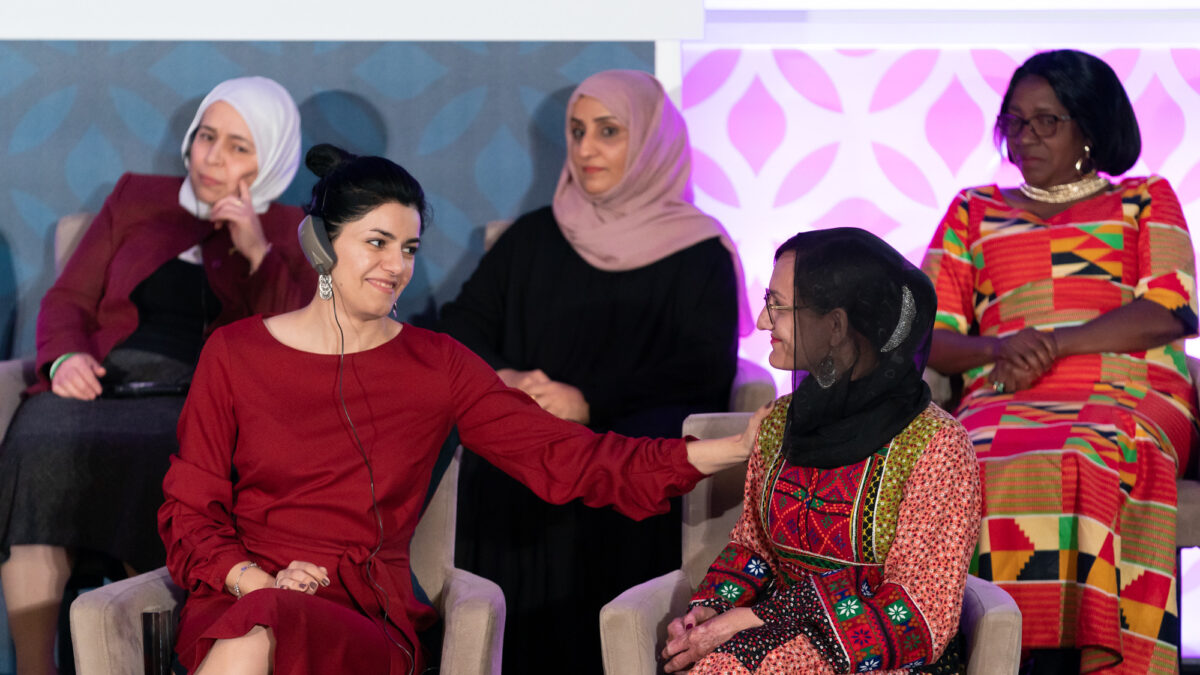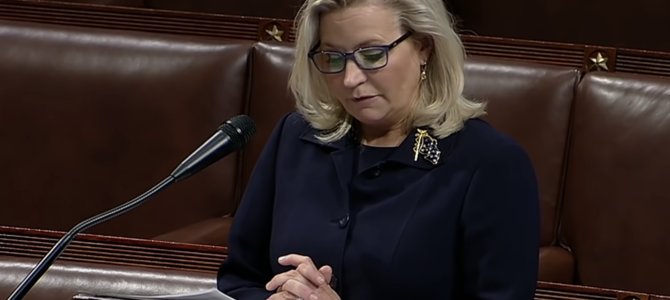By a vote of 86-11, the Senate overwhelmingly rejected legislation Thursday night to bring home U.S. troops currently engaged in hostilities in Niger. It should not go unnoticed that Congress never voted to send troops to Niger in the first place.
So much senseless violence. So much death and destruction. Shouldn’t we at least avoid wars of choice? Shouldn’t we at least not go looking for trouble in every corner of the planet?
With the Middle East on fire, what sense does it make to have more than 1,000 U.S. troops in Niger? Does it make sense to station more than 1,000 troops in a country ruled by a military junta? Does it make sense to scour the dirt backroads of Africa droning potential villains?
Presidents of both parties have used the Sept. 11, 2001, authorization to justify wars in dozens of countries, from Afghanistan to Libya to Syria to Somalia to Yemen.
Niger is but one of the more than 20 countries the United States conducts military operations in, supposedly justified by the 9/11 authorization of military force.
The impetus for this war powers resolution is the July 26 coup in which members of Niger’s presidential guard, including some officers who were trained by the United States, removed democratically elected President Mohamed Bazoum from power.
The Economic Community of West African States (ECOWAS) is an organization of 15 countries that declared its intention to intervene militarily if President Bazoum is not restored to power.
In September, Mali and Burkina Faso, two countries that experienced their own armed coups in recent years, signed a mutual defense pact with Niger and stated they will fight on behalf of the new military junta if the ECOWAS invades.
Niger’s new leaders have put its military on maximum alert, citing an increased threat of attack. For its part, the ECOWAS imposed sanctions, instituted a no-fly zone, and closed border crossings. Recent reports indicate that Nigerien troops have been deployed along the border with Benin.
The Sahel is a powder keg, and we have more than 1,000 U.S. military personnel sitting in the middle of it.
American forces face a very real risk of being caught in the crossfire of a regional African war.
Unending Abuse of 9/11 Authorization
What are we doing in Niger? Congress never voted to send troops there. Congress certainly never authorized the use of military force there. Yet, on multiple occasions, U.S. forces in Niger have engaged in firefights with hostile groups. And sadly, American lives have been lost.
My colleagues may recall that on Oct. 4, 2017, four U.S. soldiers — Sgt. 1st Class Jeremiah Johnson, Staff Sgt. Bryan Black, Staff Sgt. Dustin Wright, and Sgt. LaDavid Johnson — were ambushed and killed while on a mission near the village of Tongo Tongo, Niger.
This tragic incident was the largest loss of life for U.S. forces in Africa since the 1993 Black Hawk Down incident in Somalia. At the time, The New York Times reported, in a piece called “An Endless War,” that two senior senators, a Republican and a Democrat, both of whom still serve in this body, were surprised to learn that the United States had troops deployed in Niger.
They were surprised because Congress had abdicated its constitutional war powers to the executive branch.
They were surprised because this institution is content to allow the president to sidestep the Constitution and unilaterally deploy U.S. forces anywhere in the world, at any time, for any reason, by citing a limitless interpretation of the 9/11 AUMF.
Passed in the days following the tragic events of Sept. 11, 2001, the 9/11 AUMF was narrowly tailored to bring to justice those responsible for the attacks.
But an ever-aggrandizing executive deliberately misinterprets the AUMF as limitless, to empower the president to go to war everywhere, all the time, forever. Administrations from both parties cite the 9/11 AUMF to justify U.S. military operations against various groups in more than 20 countries.
The majority of these countries had absolutely nothing to do with 9/11. Many of the groups we’re targeting had nothing to do with 9/11. Many of them didn’t exist in 2001, and many of their members weren’t even born at the time.
Using an AUMF written 22 years ago to justify war today is a perverse abuse of power, yet Congress just stands idly by.
Deferring the decision as to when, where, and why our country goes to war to the president is a dereliction of duty. These military interventions we have carried out across the Middle East and Africa have cost thousands of American lives, trillions of dollars, and have made us less safe and less prosperous.
Remember Libya?
In many cases, our interventions have been counterproductive, destabilizing, and helped create the conditions for Islamic extremism to prosper.
Does anyone remember our intervention in Libya? I know many policymakers in this city think this is ancient history, but in 2011, the Obama-led offensive helped destroy that country. The U.S.-led coalition toppled the government of Muammar Gaddafi, killed hundreds of civilians, fomented anarchy throughout the country, and opened the floodgates for widespread extremist terror to spread throughout the region.
Libyans today are unambiguously worse off than before we intervened. In 2010, the UN Human Development Index ranked Libya 53rd in the world and first in Africa. This year Libya is ranked 104th. In 2010, the World Bank assessed Libya’s per capita GDP to be $11,600. In 2021, it was $5,910. That’s a decline of over 50 percent in per capita GDP. Does that look like progress to you?
The UN Human Rights Office reports that the execution and torture of civilians in Libya is a regular occurrence. The UN has also identified the existence of “open slave markets” where migrants and refugees transiting Libya are bought and sold as slaves.
The disaster the Obama administration helped unleash in Libya has had lasting consequences for the region. Libyan arms, including heavy weaponry such as anti-aircraft guns and surface-to-air missiles, have been traced to criminals and terrorists across the region, including in Niger, Mali, Tunisia, Syria, Algeria, and — tragically pertinent — Gaza.
Are We Fighting Terrorists or Creating Them?
Now, the U.S. uses Niger as a drone base to kill and try to clean up the mess the U.S. and others created in Libya. Unfortunately, it is rarely asked if our interminable military interventions create the terrorists we seek to destroy.
That’s a question Congress needs to answer. When four of our soldiers were killed in Niger, many believe they were on a mission to track down a person named Doundo Chefou.
According to the previous Nigerien government, Doundo Chefou is a terrorist. But before he took up arms, Chefou was merely a cattle herder of the Fulani tribe, who had no hatred for the Nigerien government or the United States.
Members of a rival tribe, the Tuareg, became mercenaries for Ghaddafi in the Libyan war. After the tyrant was deposed, these mercenaries returned home to Niger, but they were now armed with weapons of war. They turned those arms on the Fulani tribe to pillage their cattle.
Though it may not be justified, should we be surprised that Chefou turned to the Islamists for guns and training to defend himself against a heavily armed rival? Do the proponents of Western military intervention not understand that we may be creating the terrorists we seek to destroy? Do we not see the folly of our adventurism that transforms cattle herders into jihadists?
U.S. troops have been stationed in Niger since at least 2013. Ten years later, our presence in Niger has multiplied, and not once has this body debated the merits of our mission there, let alone authorized the use of military force.
Pentagon Funding for Secret Wars
In fact, we learned that our soldiers who perished in the tragic 2017 Tongo Tongo incident were on a mission authorized by section 127e of Title 10 of the U.S. code. Section 127e provides the Secretary of Defense the authority to expend up to $100 million during any fiscal year to:
Provide support to foreign forces, irregular forces, groups, or individuals engaged in supporting or facilitating authorized ongoing military operations by United States special operations forces to combat terrorism.
In short, it provides the Pentagon the unilateral authority to wage secret wars anywhere in the world without any oversight by Congress, and even less public scrutiny.
Unfortunately, the loss of four of our soldiers illuminates the fact that our troops operating under 127e authority are also in harm’s way.
Earlier this month, the Biden administration finally formally declared that a military coup took place in Niger. Once that declaration was made, the United States was statutorily required to suspend all foreign and military assistance, with the exception of certain life-saving humanitarian aid. A senior administration official stated to CNN that counterterrorism operations will remain paused, as will all U.S. training activities to build the capacity of Nigerien forces. It seems our troops no longer have a pertinent mission.
French President Emmanuel Macron recently announced that France will end its military presence in Niger and bring some 1,500 French soldiers home. We should bring our 1,000 soldiers home too.
To commit America’s military to fight wars on behalf of the nation is the most consequential and humbling responsibility that Congress is entrusted with.
Can we not, at the very least, muster the courage to debate? If America’s interest in Niger is of such vital importance that we ask our young men and women to fight and potentially pay the ultimate sacrifice to defend it, we at least owe our servicemembers a debate in Congress.
Eighty-six of my colleagues chose to stand idly by as the president sends their constituents’ sons and daughters into harm’s way, to fight wars with no clear objective, with no definition of victory, with no exit strategy, and with no constitutional authorization.









